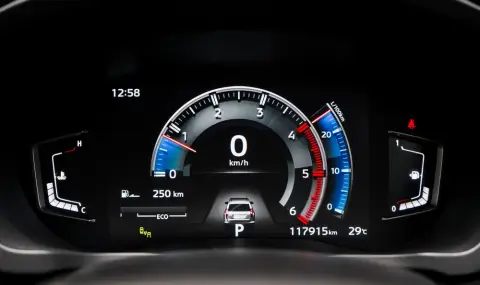A cold engine cannot be seriously loaded, and this sharply reduces its service life. Experts explain how to determine exactly that the engine is hot if your car doesn't have a coolant temperature gauge. It is a well-known fact that many modern vehicles do not have a coolant temperature gauge on the dashboard.
In principle, in most such cars, the engine temperature can be displayed in digital form, on one of the indicators on the dashboard, but this requires a lot of pressing of various buttons, which is mainly done in a service center. But there is another way.
You need to carefully monitor the tachometer needle, which is installed on almost all new cars. Immediately after starting the engine, it shows values of over 1,000 revolutions per minute. And as the engine warms up, the rpm gradually drops to the range of 650-800 rpm, depending on the type of engine.
Until the needle returns to this normal position, the unit is cold. Wait for it to be sure that the engine is at optimal temperature, the condition being that the car is stationary. This usually takes 3-4 minutes.
Experts also note that increased idle speed indicates that the engine management system is preparing a rich mixture that actively washes oil from the cylinder walls.
And if you load the engine parts without the necessary oil film on them (it is enough to overcome a snowdrift when leaving the parking lot), this can lead to scratches on the working surfaces of the piston-cylinder group, which over time will reduce the resource of your engine.
Specialists also give advice on how to safely accelerate engine warm-up. So, with a stationary car, two minutes after starting the engine, you can smoothly press the gas so that the revolutions increase to approximately 2000 per minute. Thus, reaching the optimal 650-800 revolutions per minute at idle will be faster.
